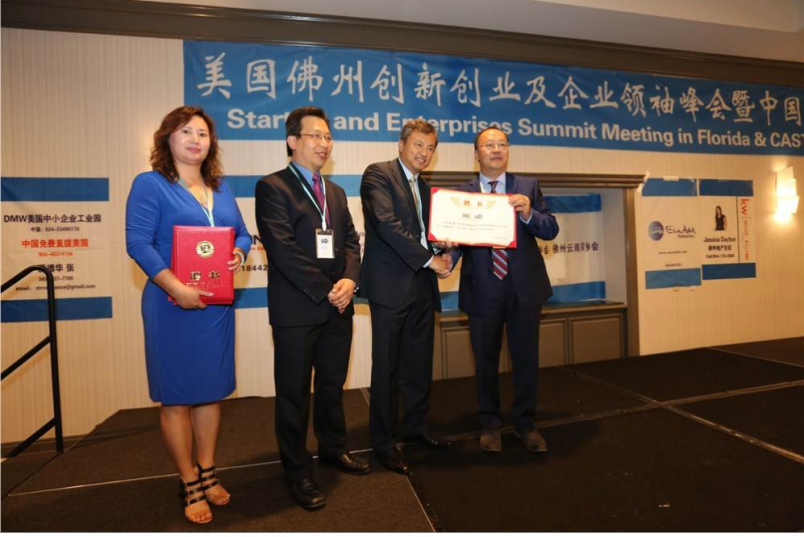Mar-a-Lago hobnobber and massage parlor magnate Cindy Yang’s involvement with Chinese government-linked groups seems like a tantalizing detail in the emerging story of her unusual access to the President. But experts caution that the picture is potentially more complicated and subtle.
Experts on Chinese intelligence and security issues keyed in on Yang’s involvement with the China Association for Science and Technology (CAST), but they differed on how significant it is that Yang was vice president of CAST’s Miami chapter while she was mingling with the GOP glitterati at Mar-a-Lago.
Some suggested it could implicate her in CAST’s alleged aim of technology transfer from the U.S. to China, while others suggested that the group itself is less important but that Yang fits into a larger web of Chinese state-sponsored efforts to collect information on and influence the U.S.
CAST traces its roots to 1949, the same year the communists seized power in China. , “A number of the nation’s primary scientific and technological organizations gathered at a meeting to call upon the country’s science and technology community to dedicate all their efforts to the building of New China,” according to the group’s website.
The group exists within China, where it operates under the guidance of the Communist Party, and is an arm of China’s Ministry of Science and Technology. It also maintains a branch in the U.S. that “primarily functions as to spot and assess U.S. tech personnel for talent recruitment programs back in China,” according to James Mulvenon, vice president of Defense Group Inc.’s intelligence division and a co-author of “Chinese Industrial Espionage: Technology Acquisition and Military Modernization.”
Mulvenon described CAST’s purpose – and the story around Yang’s role – as “illicit technology transfer.”
It’s clear from Yang’s own public profile and from those who know her that she spent time cultivating links with Republican officials, in part through Mar-a-Lago. Recent reporting indicates that Yang was involved in at least one fundraising meeting for Trump, which saw a group of Chinese executives reportedly attend the Manhattan-based fundraiser in 2017 on Yang’s guidance.
Experts TPM spoke to suggested that while Yang’s involvement in CAST and other groups definitely tie her to the Chinese government, the implications beyond that are hard to determine.
“You just can’t tell,” Scott Kennedy, director of the project on Chinese business and political economy at the Center for Strategic and International Studies, told TPM. “She could be one of those businesspeople who goes around searching for titles because it makes her look more connected officially, or it could be someone out of the Chinese system who is put into business.”
“But if [CAST] was on her card, I would think, ‘Oh, this is someone connected to the Chinese system'” Kennedy added. “I would certainly not just treat them as an independent private entrepreneur.”
Yang’s attorney Evan Turk claimed yesterday that she was being targeted due to her support of Trump.
“Cindy Yang seems to be another casualty, as a supporter of our president,” he said in the statement. A Yang representative declined to comment beyond that statement, in which Turk denied that she had significant ties to the Chinese government.
CAST’s U.S. headquarters did not return phone calls left by TPM, while its Miami chair did not reply to an emailed request for comment.
Yang was also involved with the Council for the Promotion of the Peaceful Reunification of China. According to Adam Segal, director of the Digital and Cyberspace Policy Program at the Council on Foreign Relations, Yang’s involvement in the Florida branch of the council could also be a cause for concern.
“There’s a specific aim, and the language around reunification is trying to ensure a specific political argument about Taiwan and its relationship to the mainland,” Segal told TPM. “CAST is much more about technology transfer and business deals.”
Other argued that such groups are, by nature, meant to be murky and hard to define, and that difficulty in distinguishing between Yang’s roles as Mar-a-Lago socialite, massage parlor mogul, and potential influence operator is par for the course.
“China has a very sophisticated outreach effort,” RAND Corporation political scientist Scott Harold told TPM, adding that the goal is “to build friends, isolate enemies, and influence people.”
The fact that Yang appears to have straddled different worlds is not unusual for the effort, Harold said.
“This suggests less about Ms. Yang than about how the Chinese government thinks about influencing the global community,” he added.






